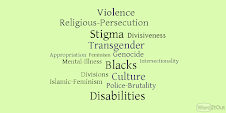Hello Veron Family,
This morning we had the pleasure of being toured around
Harlem by Ron Moelis of L+M Development Partners as he showed us one of his
mixed income housing developments. We got an interesting perspective and learned
a great deal about rentals/affordable housing vs condos sold at market rate. He
also discussed how aware he was on how his work impacts the community. L+M
Development Partners' mission is not just about doing well, as far as profit
margin, but also good. It is more common for developers to take the city up on
its offer of tax exemptions and other perks only to produce 20% of affordable
housing while the rest are at market rate to meet their bottom line. Ron's
company was one of the first to take a balanced approach at 50/50. Affordable
housing is a major issue in New York City worth tackling but there is also money
to be made in the condo market. So with this double bottom line in mind, the
company takes on highly profitable ventures and projects that may not be as
profitable but have a great social impact. There are challenges that surface
with this approach but organizations do have their limitations. One example he
used was creating a number of affordable housing units on land provided by the
city and having to host a lottery due to the large number of applicants. In
cases like this, preference is often given to community residents to reduce the
social injustice of displacement but it occurs nonetheless. Additionally, the
community preference approach is being challenged as discriminatory by
community outsiders who believe the practice is denying others from living in a
community that already has an established demographic. Also, partnerships
seemed to be a reoccurring theme in the business of development to achieve the
goal of good work. Taking over NYCHA housing that was being poorly managed
proved to be an opportunity. Residents were worried at first about the
privatization of this project. However, realized the benefits after renovations
and the creation of senior and community centers. Also, the work the developers
do with local nonprofits (Street Squash).
I’m interested in what were your top three takeaways from
this morning’s session?
Also, many students at John Jay have goals of landing a
career in public service. More often than not it means a position in the
non-profit or government sector. I challenge you all, similar to Ron, to
explore for-profit companies and their missions. Which ones would you consider
working for? In what capacity? How could this role impact the social justice
issue you care about most?
Lastly, we all have spent a great deal of time at our
respected agencies. We have a pretty good idea of how they operate, where they
do a great job of performing and where they might need some improvement. Many
organizations face obstacles preventing them from achieving their mission as
effectively as they might want to. If you all were given the responsibility for
using the resources of a social impact bond to improve your agencies, how much
do you estimate it would take? Where would you allocate the money? Why?
Would you increase salaries to employees take their jobs
more seriously? Upgrade office technology? Provide clients with certain
resources? Start a new program within your agency? Etc
